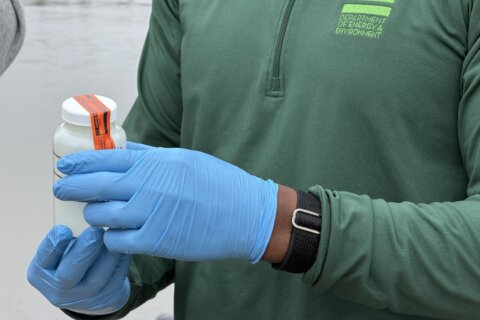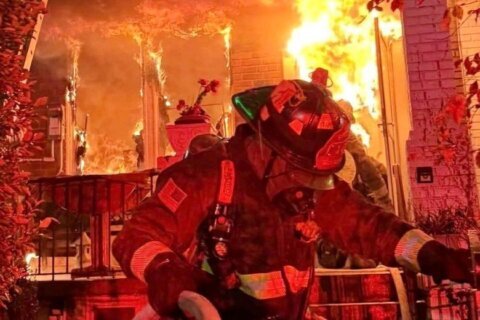This video is no longer available.
In D.C.’s Chinatown, the paifang arch signals that you’ve arrived at a place of historical significance disparate from the political machine of the nation’s capital. Down the block from the Friendship Arch looms Capital One Arena, home of the Washington Capitals and Washington Wizards, whose potential move to Northern Virginia is all but certain to once again transform the area where the District’s Chinese population once resided.
Through the 1960s, Chinatown was a flourishing immigrant community composed of homes and businesses owned by Chinese residents. Now, more than 50 years later, only about 300 people of Chinese descent — both new immigrants and people who have lived and worked in the U.S. for many years — live in Chinatown. The majority reside at the Wah Luck House. There are even fewer Chinese property and business owners.
Yeni Wong owns the Wah Luck House and other properties in Chinatown, including the Chinatown Garden restaurant. She said the teams should stay where they are.
While Wong said she understands why Ted Leonsis, the CEO of Monumental Sports and Entertainment, which owns the teams, wants to move, she views what’s happening in the neighborhood as a “cycle” and she cannot predict what could happen with the move.
In her nearly 30 years of doing business in the D.C. area, she has seen the peaks and valleys of the downtown neighborhood — predating the arena’s arrival in the 1990s to the present.
“Before the arena, we had a lot of tourist business and convention-goers. So, we still have this space here,” Wong said.
‘It’s going to be like a ghost town’
The residents of the Wah Luck House, one of the last bastions of affordable housing in the District, tell Wong they enjoy seeing the crowds when there are games and events at the arena. They would be very sad to see the teams go.
“It’s going to be like a ghost town,” Richard Yung, 84, said through a translator. Yung came to the U.S. almost 50 years ago and has been at the Wah Luck House for about 20 years. He added that it would not be good for business. “This is part of the D.C. symbol to other people.”
Yung’s neighbor Mona Meng, 83, from Taiwan, has lived at the Wah Luck House for some 10 years, and said she, too, would be sad to see the teams leave the arena. She said she enjoys seeing people come for the games, and even though it gets kind of noisy at times, “I like it.”
See Ming Chan, 72, has been at the Wah Luck House since 2012, when he started taking care of his parents who also lived in the building. In the 1990s, he said he remembers many Chinese restaurants dotted the neighborhood. But then they started closing. “A lot of empty places,” Chan said.
That’s until the MCI Center moved to the current Capital One Arena — then hotels and apartment buildings started going up, Chan said.
“It’s not a done deal yet,” said Eddie Moy, with the Moy Family Association in D.C., referring to the Monumental move.
The association, a nonprofit consisting of members of the Moy family, started when new immigrants from China came to D.C. and had trouble borrowing money. The community borrowed money among themselves, “like family members,” Moy said.
Eventually, various members of the Moy family pooled their funds to buy a building to use for meetings, social activities and housing for some individuals. The property — 509 to 517 H St. Northwest — is zoned for mixed-used. Currently, there’s a retail shop, a nail salon, the Full Kee restaurant, and some residential tenants.
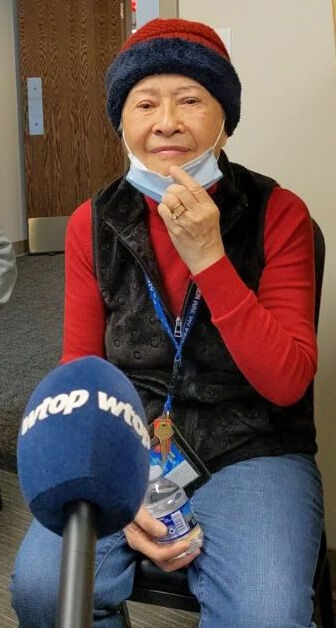
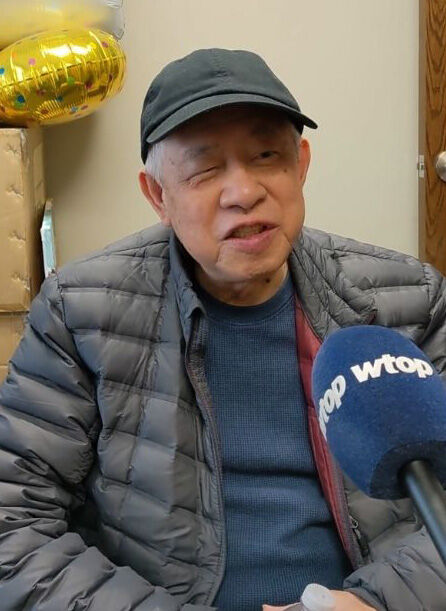
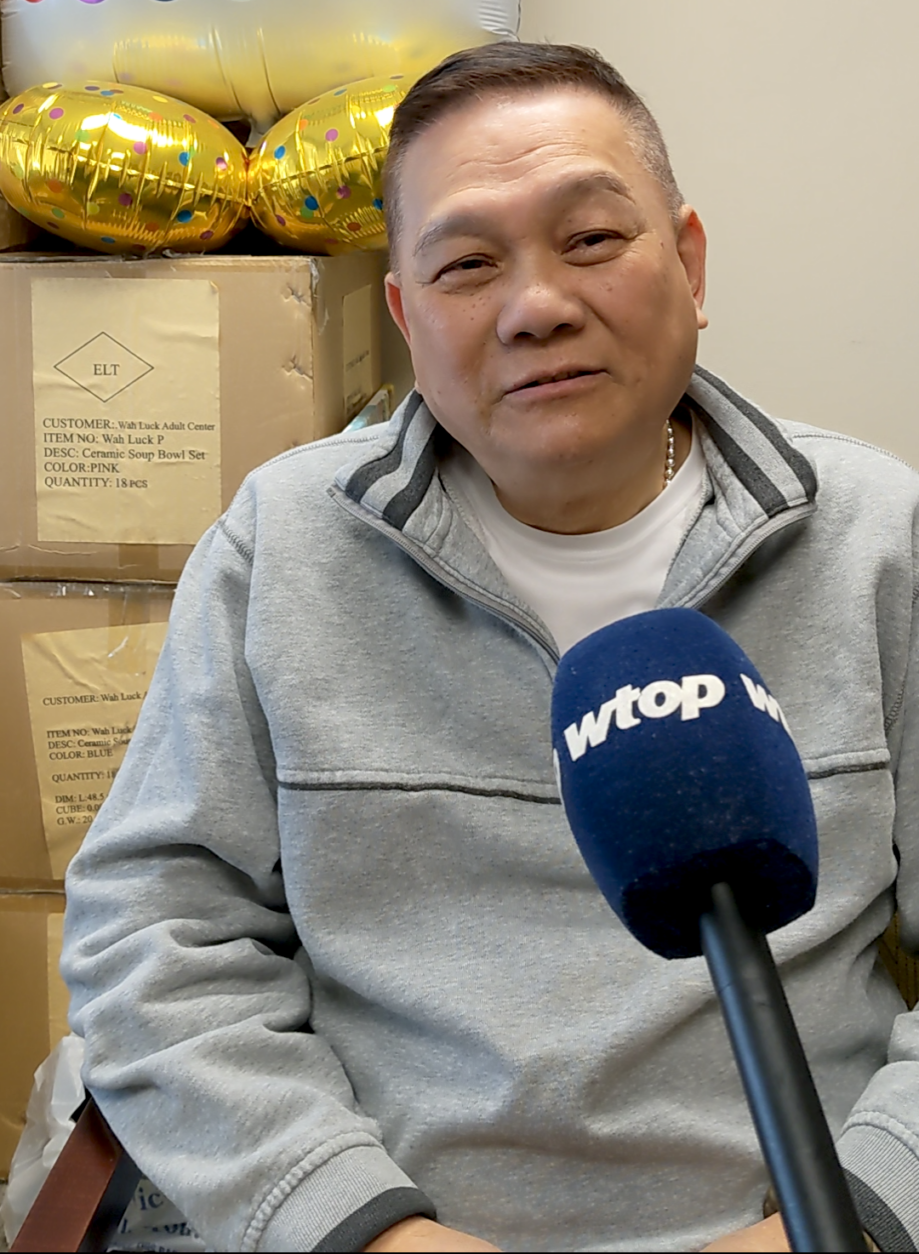
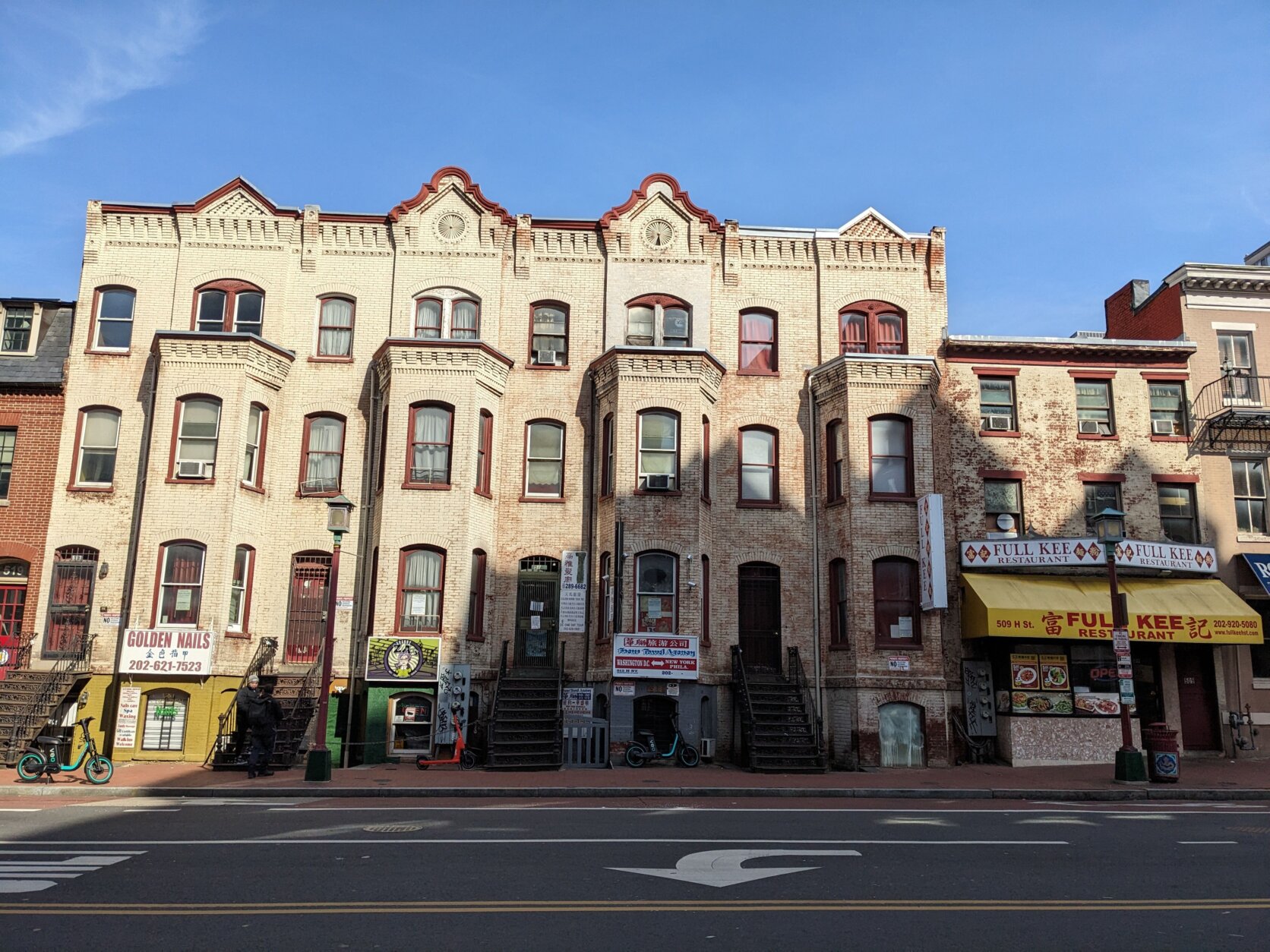
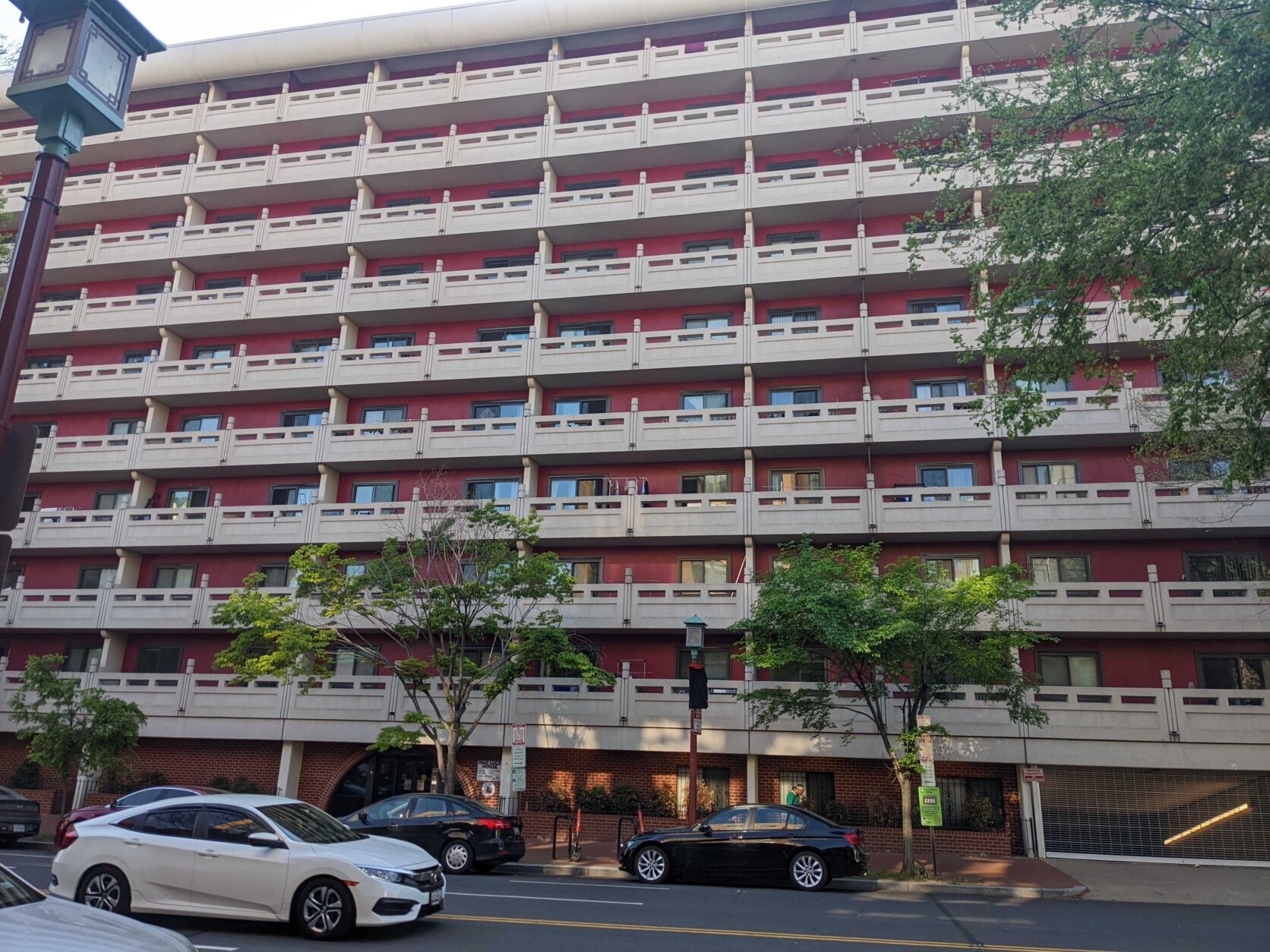
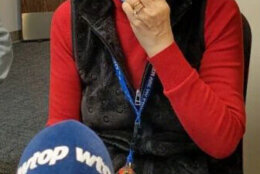
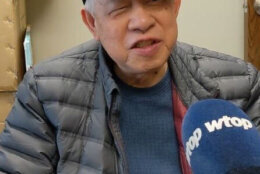
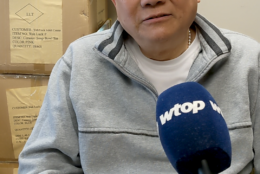
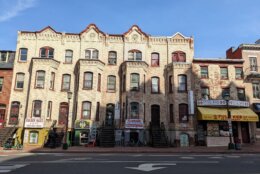
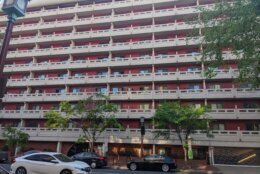
Uncertain future
If the teams move, Moy said there’s probably going to be a dent in the economy in Chinatown, as well as less foot traffic and many more crimes.
“I think Mayor Bowser is trying to do all she can to keep the arena in the city … Doesn’t seem like a welcome mat in Alexandria,” Moy said.
While Virginia Gov. Glenn Youngkin is eager to welcome Monumental Sports, there’s been some roadblocks from community members, labor unions and local officials.
With downtown D.C. still in decline from the effects of the COVID-19 pandemic, Mayor Muriel Bowser and other District leaders don’t want to see the teams leave, but they are making plans in case they do. Bowser has created the Gallery Place/Chinatown Task force, which aims to focus on the potential future uses of the area.
“Community engagement will be an important part of the Gallery Place-Chinatown Task Force’s work to reimagine potential future uses of the Capital One Arena, Gallery Place, and the surrounding area,” said Nina Albert, D.C. Deputy Mayor for Planning and Economic Development, in a statement. “The Task Force looks forward to hearing from and engaging with Chinatown neighbors, businesses, and community members over the coming months as the vision is developed, and people can also submit their comments at BeDowntown.dc.gov.”
Moy hopes to have his property developed into condominiums, apartments or short-term rentals or maybe even a hotel. But a tenant group said the proposed development would displace them.
The Museum Square Tenants Association came out to protest during D.C. Mayor Muriel Bowser’s remarks at the Lunar New Year celebration on Feb. 11. One of the group’s concerns is the development of what it described as the “last contiguous row of longtime Chinese small businesses and historic row houses on the 500 block of H Street.”
In an effort to tackle rising crime in the area, Bowser also announced the opening of the “Safe Commercial Corridor Hub” in Chinatown designed to give residents direct access to police and other agencies.
Rita Lee, who is a member of the task force, runs the adult day care center at the Wah Luck House. Speaking as the director of the day care center, she said that the hub is very helpful in supporting the area, and the older adults living at the Wah Luck House are very pleased.
Lee said the day care center started during the pandemic, when the streets of Chinatown were empty and a lot of businesses shut down. The news of the potential move was a blow, she said, just as things started getting back to normal.
“We’re kind of worried about it,” Lee said. “A lot of businesses will shut down, a lot of vacant places, fewer tourists here,” Lee said.
Property and business owner Wong said it’s unclear what will happen. There are reasons to be hopeful. The Walter E. Washington Convention Center and the City Center development were both credited with helping revitalize parts of the area in the past, and the teams’ departure would leave a prime location for redevelopment opportunities.
Wong said that Washington is a tourist town, which helps.
“We have cherry blossoms … tourists coming to visit our business,” Wong said. The Monumental move will have an effect, but she said, “It’s not going to destroy” Chinatown.
Get breaking news and daily headlines delivered to your email inbox by signing up here.
© 2024 WTOP. All Rights Reserved. This website is not intended for users located within the European Economic Area.


